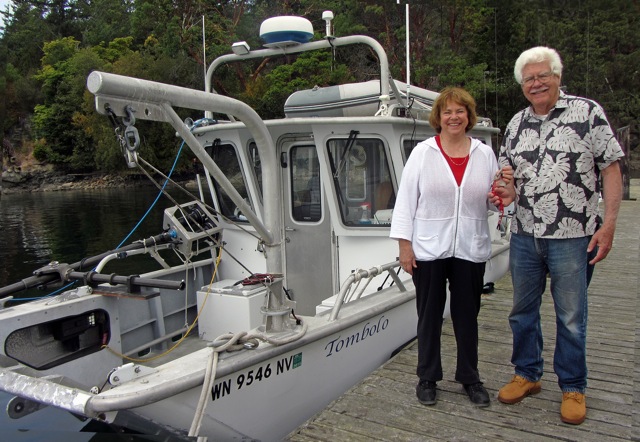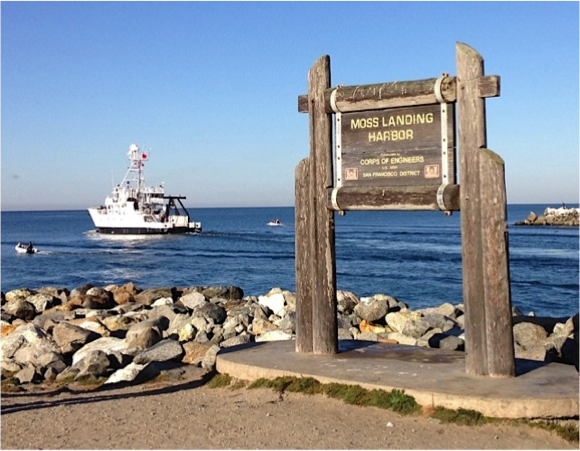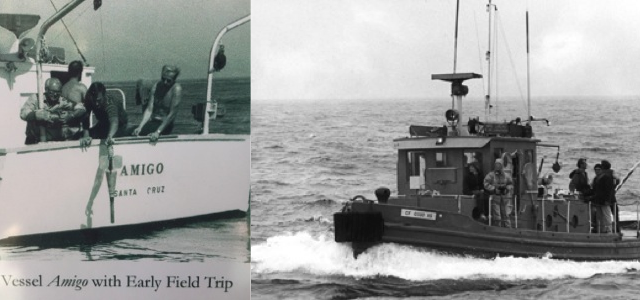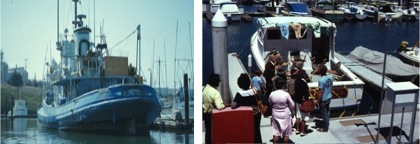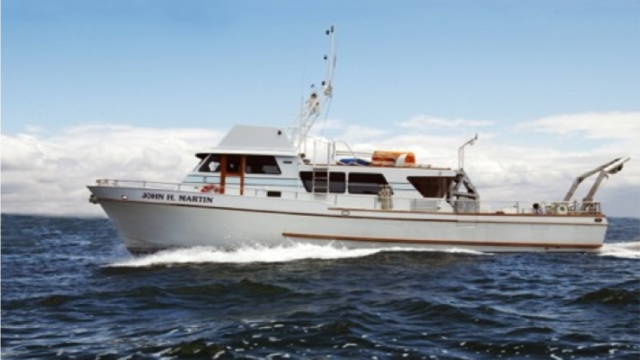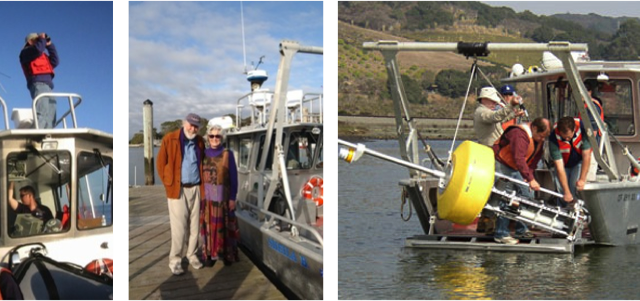By Mike Prince (21 August 2015)
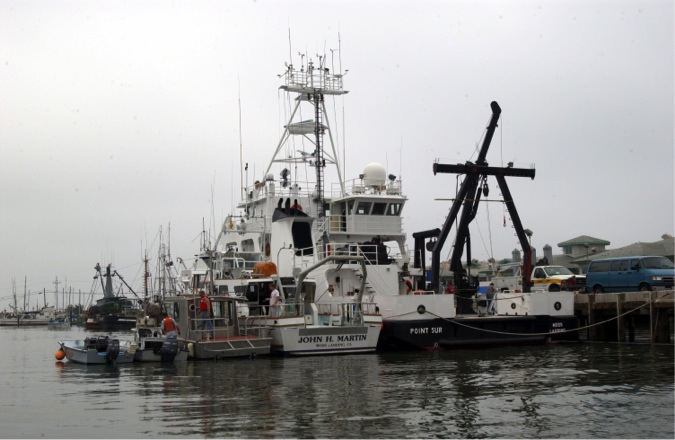
Moss Landing Marine Labs has always been about providing our students with research experiences in the field, which for them is at sea, or in estuaries and bays like Elkhorn Slough, Stillwater cove in Carmel Bay, San Francisco Bay and Delta and far flung locations like the Gulf of California and Antarctica. Our students conduct their own class projects, Thesis research projects and benefit by supporting and participating in research projects conducted by our Faculty and associated researchers. One important way that MLML has supported these objectives has been through the maintenance and operation of a fleet of Research Vessels and small boats.
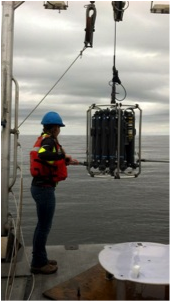
Our former Director, Dr. Kenneth Coale says it well.
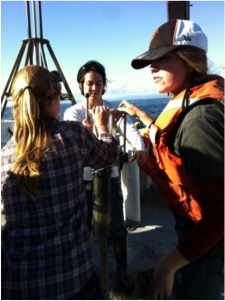
“The mission of the Moss Landing Marine Laboratories has been to provision the pioneers of the future. This means that we deliver our students safely into the marine environment; with the physical and intellectual resources they need to push back the frontiers of science. Some need only a pair of waders and a quadrat, others a SCUBA tank and a meter tape, others a submarine, still others an aircraft. Many have relied upon our fleet of research vessels that have safely conveyed our students, faculty and staff above the waters, so that they could peer below it's surface. It is this fleet that has distinguished us from other institutions and because our needs are so varied, our fleet has represented a diversity varying from simple kayaks to NSF regional class research vessels over 500 tons. This fleet is unparalleled in any other Masters program. Where this fleet has not met our needs, the National Science Foundation, NOAA and the Office of Naval Research have provided additional opportunities on icebreakers, global class vessels and submarines.”
My own employment with MLML started as a crewmember in the Research Vessel Cayuse in 1980, but there were several vessels that pre-date the Cayuse. I will cover some “sea stories” about some of our vessels in more detail in subsequent blogs. This piece will focus on an overview of our fleet and the vessels that have called our docks their homeport. I encourage you to comment with any sea stories, memories, or additions you might want to share.
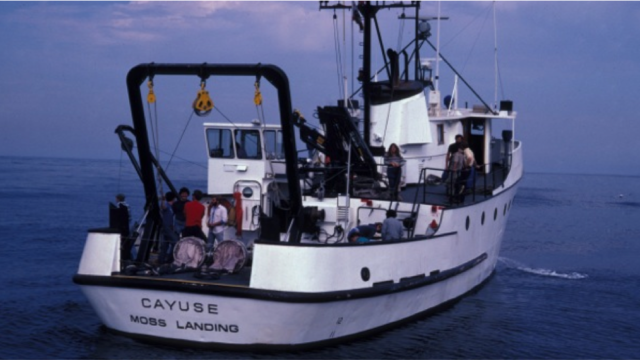
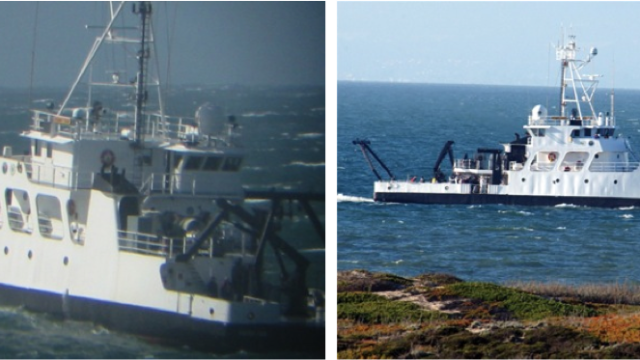
MLML also maintains a fleet of small boats, inflatables and kayaks including the very imaginatively named White, Blue and Navy Whalers, the Slough Boat and the Orange RHIB along with many others over the years. Some were well outfitted for work in Monterey Bay and near coastal waters such as the R/V Ridgeway and the Bay Whaler while others such as the smaller whalers and the Slough boat are very basic stable platforms suited for the shallow waters of the Elkhorn Slough. Trailerable inflatables and whalers allowed for diving and field work anywhere along the coast and as far away as Baja California.
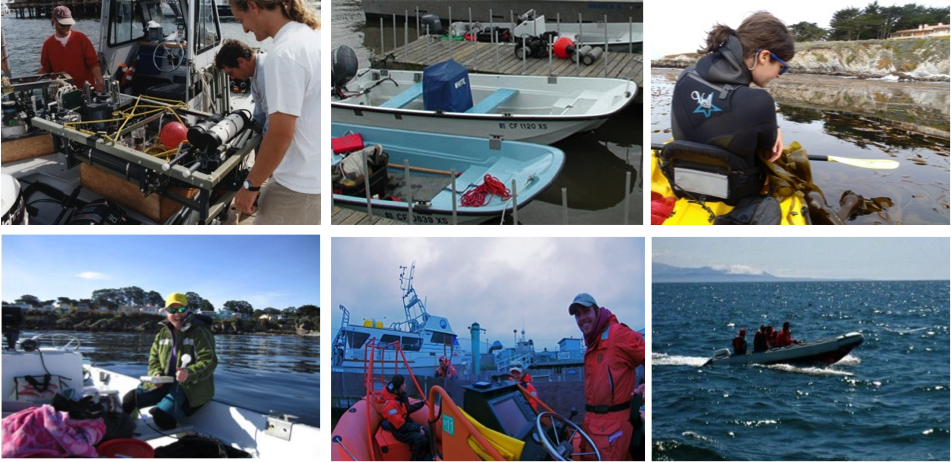
With the retirement of the R/V Point Sur from the UNOLS fleet and the sale to the University of Southern Mississippi this year our Marine Operations program is in a state of transition. We still operate the R/V John Martin, R/V Sheila B, and the many smaller boats. We are looking for opportunities to continue getting our students to sea on larger sea-going research vessels and also for the resources and opportunities to acquire a new vessel to support the important educational and research programs at MLML. Any good ideas are welcome!
We just recently added another vessel to the fleet. The R/V Tombolo is a 24-feet Munson Packcat outboard motor boat that was donated to MLML by Kathy Dickinson. It is presently located in Puget Sound, and is operated by Gary Greene, MLML Emeritus faculty member.
